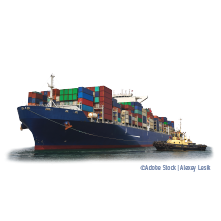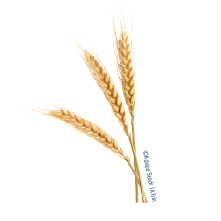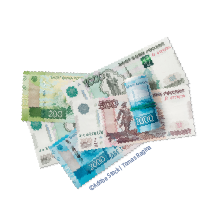Defeating the pandemic
When the world was hit by the worst pandemic of our generation, the Commission took up the charge to protect lives, livelihoods and our economy.
We helped research and roll out life-saving vaccines in record time. We made sure that all Europeans got access to vaccines at the same time, no matter which Member State they lived in. We secured up to 4.6 billion vaccine doses, on behalf of Member States, to protect Europeans and to share with partner countries. Over 80% of the EU adult population has received at least the first vaccination course.
As vaccination allowed countries to open their borders cautiously, we developed practical tools to enable Europeans to travel safely. We set up an EU Digital COVID certificate, connecting 78 countries and territories. This has now become the model for a global system to facilitate mobility and protect citizens across the world from pandemics.
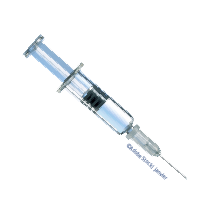 Over 80%of the EU adult population has received at least the first vaccination course
Over 80%of the EU adult population has received at least the first vaccination course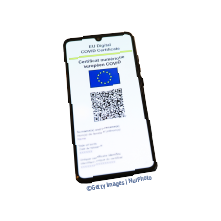 78 countries and territoriesare connected through the EU Digital COVID certificate
78 countries and territoriesare connected through the EU Digital COVID certificate
As the lockdowns threatened to shut down companies and wipe out jobs, we developed an instrument for temporary Support to mitigate Unemployment Risks in an Emergency (SURE). In 2020, it kept 2.5 million companies open and 31.5 million Europeans employed, avoiding a massive economic and social crisis. And when borders were closed and goods got stuck on the road, we launched the Green Lanes to facilitate circulation and prevent shortages of basic goods.
Powering Europe’s recovery
Just as vaccines reached all Europeans at the same time, we worked to ensure that the economies of all Member States, especially those worst hit by the pandemic, could recover rapidly. At a time when we faced the deepest recession since World War II, we achieved the strongest recovery since the post-war boom. This recovery was possible because we developed a bold new plan, to raise money on the market and invest together in Europe’s recovery and resilience.
NextGenerationEU has been a boost of confidence for our economy. Worth more than €800 billion, it is propelling our economies with a combination of investment and reforms. Hundreds of projects funded by NextGenerationEU are already delivering tangible results for Europeans, from offshore wind farms to electric trains, from top-notch digital public services to world-class hospitals. In parallel, EU Member States are using NextGenerationEU strategically to carry out deep reforms, like labour market reforms, pension reforms, and accelerated permitting for renewables. This is our Union powering Europe’s prosperity.
Firm response to Russia’s invasion of Ukraine
As Russian tanks crossed the border, our Union stood up for Ukraine, with unity, strength and resolve. And the Commission, once more, rose up to the occasion. We paved the way by hosting more than 4 million Ukrainian refugees in the EU. We organised the delivery of unprecedented humanitarian, financial and military assistance from the EU and Member States, reaching almost €98 billion so far, including €33.1 billion in military support. And we are working closely with our G7 partners to make sure every euro goes where it is most needed in Ukraine.
The dictator in the Kremlin has gambled on the disunity of Europeans. Together, we proved him wrong. We will stand by Ukraine for as long as it takes. Through the new Ukraine Facility, we will deliver another €50 billion over the next four years, to help provide basic services – keep schools open, pay salaries and pensions, while Ukraine’s people continue to fight back against the invader. Every victory for Ukraine against the aggressor is also a victory for our common security in Europe.
At the same time, we have supported Ukraine every step of the way as it works hard to reform and get closer to the EU. Recognising the country's tremendous progress and responding to the aspirations of the Ukrainian people, our Union took the historic decision to open accession negotiations with Ukraine, based on the Commission’s recommendation.
We also helped tackle the impact of Russia’s aggression worldwide. As Russia’s war threatened to trigger a global food crisis, we came up with our trademark solutions to bring Ukraine’s crops to countries that needed them most. We opened Solidarity Lanes, which have helped export 122 million tonnes of Ukrainian goods, including nearly 64 million tonnes of agricultural products, mainly for export.
The impact of Solidarity Lanes
At the same time, we are at the forefront of efforts to hold Russia accountable for its actions and pay for the destruction that it has caused. We have introduced 13 packages of sanctions to cripple Moscow's war machine. We have immobilised over €200 billion of Russian Central Bank assets in the EU. We are supporting the collection of evidence on Russia’s war crimes and its crime of aggression. Because Europe stands up for international law.
As the strategic environment around us has fundamentally changed, Europe needs to face up to a new responsibility. This is why this Commission is developing a new European Defence Industry Strategy. It will bring strategic focus and will help to tie together Member States’ and European firms’ efforts, from research to industrialisation and commercialisation of new systems, on to production ramp-up, coordinated procurement and security of supply. Because peace requires security.
Common solutions to the worst energy crisis in decades
While launching its assault on Ukraine, Russia also used energy to blackmail us, triggering an energy crisis in Europe and the fear of blackouts. Once again, our Union pulled together.
With the Commission’s groundbreaking REPowerEU plan, we secured our energy supplies and reduced our dependence on Russia. We diversified our supplies, by finding reliable new partners. We reduced our gas use by 18%, thanks to tremendous efforts by European people and companies. And we doubled down on the roll-out of renewables.
For the first time, we produced more electricity from wind in the EU than from gas last year. We have almost doubled the amount of solar energy produced in Europe. And installations of solar and wind energy have increased on an annual basis by around 35%.
How EU energy use is changing:
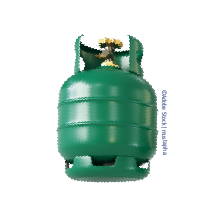 18%less gas use
18%less gas use 35%increase in installations of renewable energy
35%increase in installations of renewable energy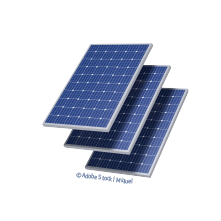 Almost 2xsolar energy produced
Almost 2xsolar energy produced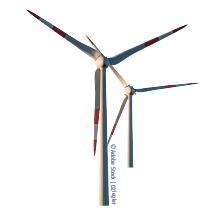 Moreelectricity from wind than electricity from gas in 2023
Moreelectricity from wind than electricity from gas in 2023
To address the spike in energy prices caused by Russia’s blackmail, which caused hardship for our people and companies, we put in place an approach that had already proved successful during the pandemic.
We put in place the EU Energy Platform to pool demand for gas and launch competitive tenders, giving our companies a stronger bargaining position on global markets. And it works. In 2023, European buyers had access to 42 billion cubic metres of gas through the Platform. And the latest EU joint tender from February 2024 was three times oversubscribed, attracting a total volume of 97.4 billion cubic metres from international suppliers.
Thanks to the combined actions that we took, today's prices are almost ten times lower than at the height of the crisis. And Europe's dependence on fossil fuels from Russia is over, once and for all.
Providing support when disaster hits
Throughout the mandate, the Commission has boosted Europe’s capacity to provide vital support to countries hit by disaster, from floods to forest fires, from earthquakes to medical emergencies.
The EU Civil Protection Mechanism has channeled support to all parts of the continent and beyond. Our teams were at work to rescue people and clear the rubble just hours after deadly earthquakes ravaged Albania, Croatia and Türkiye. They were quick with support on the ground following devastating floods in Belgium, Germany, Italy and Slovenia.
Since 2019, we have provided over €3 billion through the EU Solidarity Fund to Member States and accession countries hit by natural disasters and public health emergencies.
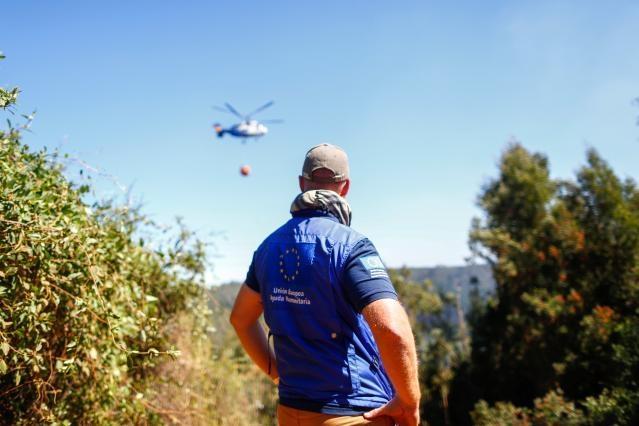
Our firefighting fleet has helped battle wildfires from Greece to Portugal, from France to Albania. And across the Atlantic too. In a historic first, Canada turned to Europe for support when it was hit by the worst forest fires in recent times. And Europe answered the call. Hundreds of European firefighters combatted the violent fires which ravaged Canada’s forests.
But the frequency and intensity of extreme weather events, as well as the pandemic, have shown that we need to do more to respond to disasters. This is why we created rescEU: a common reserve of European resources, including a fleet of firefighting planes and helicopters, medical evacuation planes, and stockpiles of medical items. A real European safety net for emergencies.
When disaster strikes, our Union is now better equipped than ever to support Europeans – and the rest of the world. Since 2020, we have coordinated 232 Humanitarian Air Bridge operations, responding to 12 crises worldwide, most recently the dire humanitarian situation in Gaza.


